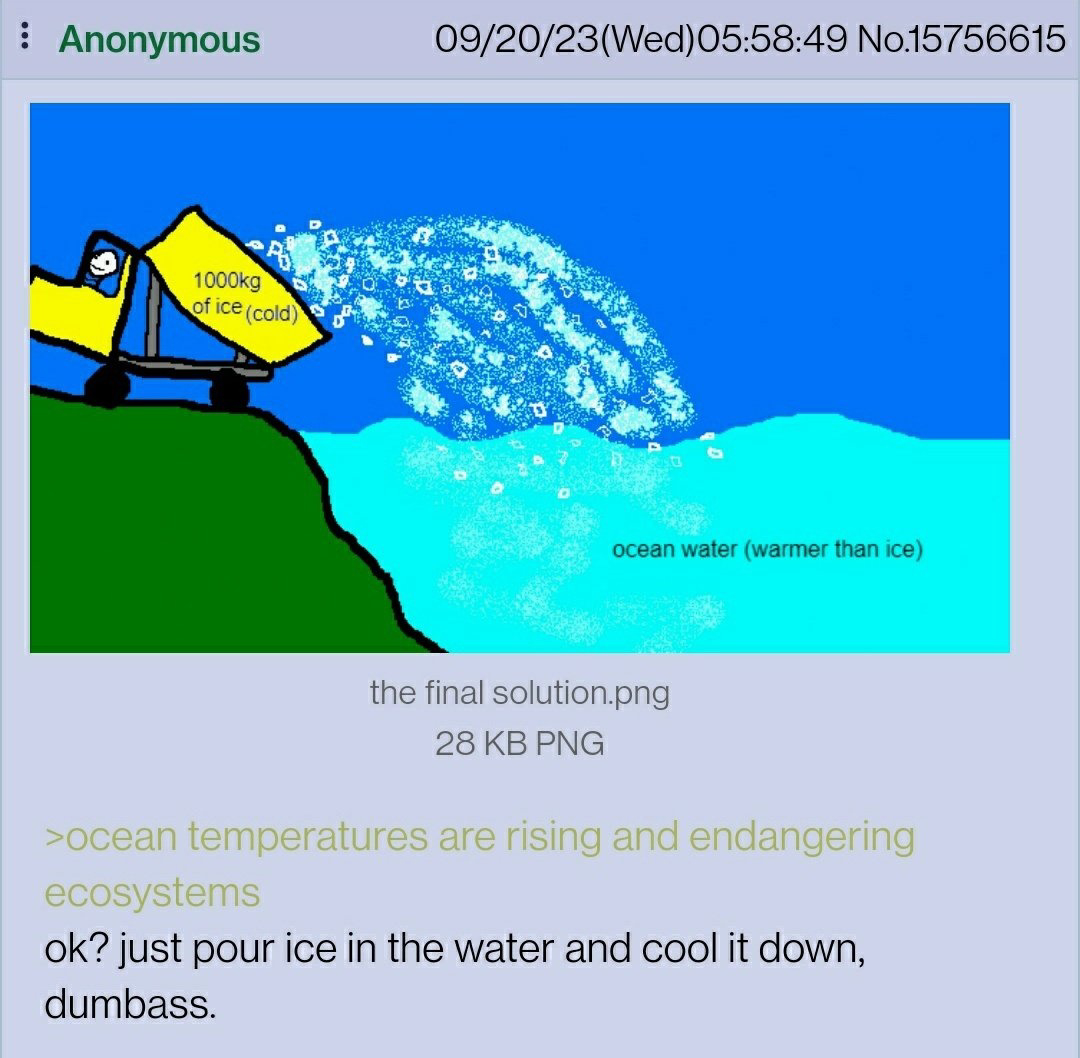this post was submitted on 01 Oct 2023
414 points (97.5% liked)
> Greentext
7533 readers
8 users here now
founded 2 years ago
MODERATORS
you are viewing a single comment's thread
view the rest of the comments
view the rest of the comments

It's simple, we import ice from outside the environment.
Unfortunately, dropping ice asteroids onto earth creates more heat from atmospheric friction.
The trick is to get it through the atmosphere at a really high speed. That way the plasma around it forms a protective layer, only ablating the outer most layer of ice. It also spends a very small amount of time in the atmosphere, so it doesn't have time to heat up. Almost all the ice reaches the ground that way.
It's also easier, instead of bringing a chunk of ice from the belt to Earth and slowing it down (which takes a lot of energy). You just need to redirect it's orbit so it will land on Earth somewhere in the future. The bigger the piece the better it works, so we really need to find a big one.
To be fair, we should send several pieces of ice, timed to land on different parts of the planet. It's kinda rude to have one part of the planet be cooled down and not other parts. If we space the landings 6 hours apart we could use the rotation of the Earth to make sure everyone has access to the cold ice. We'd only need 4 big chunks of ice.
Easy! It's really just a matter of willpower to do so if you really think about it.
No asteroids for you, Mr. Apocalypse.
And after some million years future archaeologists will see a nice distinct black layer and be surprised how much it looks like the black layer that's 65 million years older.
You guys get all attached with your science theories. This is just pratical. We get the ice from the mexicans and drop in the ocean. Badabing-Badaboom. Easy as that.
It needs to enter the atmosphere very slowly